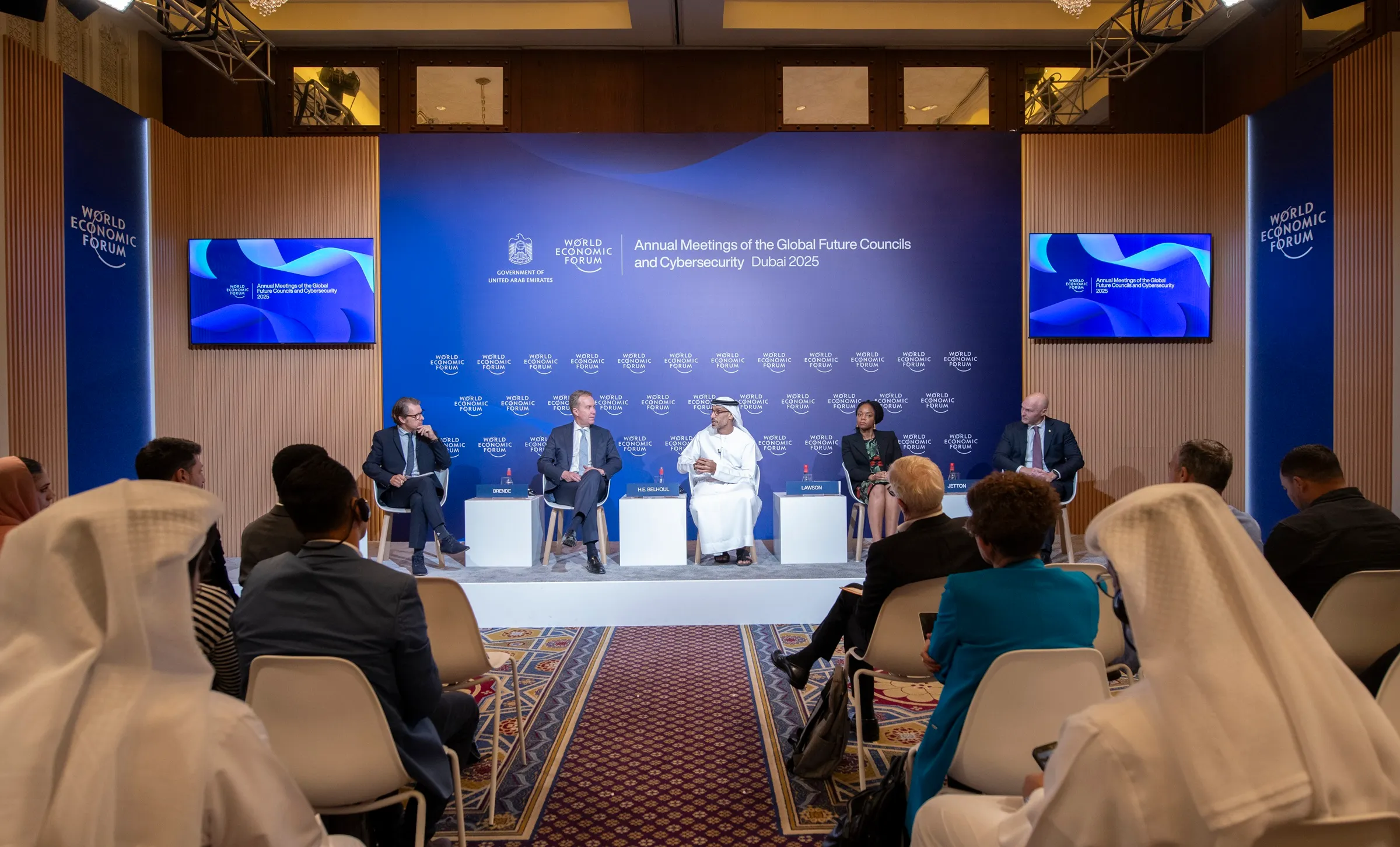
403
Sorry!!
Error! We're sorry, but the page you were looking for doesn't exist.
Cybersecurity In Focus As A 'Critical Global Priority' At The Annual Meetings Of The Global Future Councils 2025
(MENAFN- Mid-East Info) Børge Brende: This universal challenge necessitates unprecedented collaboration, even in a fragmented world.
-
Khalfan Belhoul: There is no other approach that is more reasonable than what has been mentioned here, which is having joint conversations with like-minded individuals, leaders, and entities.
Cina Lawson: The core value of the Annual Meeting lies in the opportunity to sit down with people who have done it before, who have done it differently.
Neal Jetton: The World Economic Forum is more than a once-a-year meeting, but a deep, operational partnership.

Legal Disclaimer:
MENAFN provides the
information “as is” without warranty of any kind. We do not accept
any responsibility or liability for the accuracy, content, images,
videos, licenses, completeness, legality, or reliability of the information
contained in this article. If you have any complaints or copyright
issues related to this article, kindly contact the provider above.


















Comments
No comment